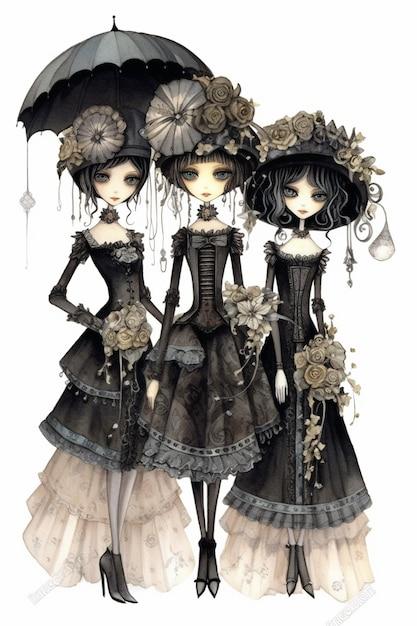The 18th century was a period of immense intellectual and literary growth in England, giving birth to a distinctive form of literature that continues to captivate readers to this day. As we delve into the world of 18th century British literature, we’ll discover the unique features and notable writers that defined this era. From the emergence of the novel as a dominant literary form to the popularity of periodical essays, this blog post aims to provide a comprehensive exploration of the literary landscape during this fascinating time.
So, what exactly makes 18th century English literature so intriguing? We’ll unravel the answer by delving into the major novelists of the time, exploring the elements that defined novels of this period, and uncovering the classics that have endured the test of time. From the pioneering work of Daniel Defoe in writing the first English novel to the wit and wisdom of Alexander Pope’s satirical poetry, we’ll uncover the gems that shaped the literary world of the 1700s.
Join us on this journey through time, where we’ll navigate the pages of influential novels and discover the profound impact of 18th century English literature.

What Sets 18th Century English Literature Apart?
A Time of Intellectual Flourishing and Literary Greatness
When it comes to 18th century English literature, buckle up because you’re in for a wild ride! This century witnessed a literary frenzy like no other, with writers galore and literary masterpieces a-plenty. So, what exactly makes this era so special? Let’s dive in and explore the captivating features that set it apart from the rest.
The Rise of Novel Ideas and Novels
Move over, poetry! In the 18th century, novels took center stage and stole the show. These works of fiction became wildly popular among the masses craving a taste of escapism from their everyday lives. From Daniel Defoe’s Robinson Crusoe to Henry Fielding’s Tom Jones, these novels transported readers to far-off lands, thrilling adventures, and intricately woven plots that left them eagerly turning page after page.
Satire: The Weapon of Choice
If you’re unfamiliar with the art of satire, get ready to have your socks knocked off! 18th century English literature perfected the art of wielding satire like a rapier, slicing through society’s absurdities and exposing its follies. The likes of Jonathan Swift, with his biting wit in Gulliver’s Travels, and Alexander Pope, with his sharp pen in The Rape of the Lock, left readers both entertained and enlightened as they turned the mirror on society’s quirks and hypocrisies.
Reason Reigns Supreme: The Age of Enlightenment
Ah, the lofty ideals of the Enlightenment! The 18th century was an era deeply influenced by reason, logic, and intellectual progress. Philosophers like John Locke and thinkers like David Hume reshaped the way people viewed the world, and this rational mindset seeped into the literature of the time. Writers sought to enlighten readers with their works, exploring themes of human rights, social justice, and the power of knowledge. It was a time when every word penned had the potential to change hearts and minds.
Coffeehouses: Literary Hotbeds and Gathering Places
Forget fancy townhouses and lavish estates, the real hub of literary activity in the 18th century was the humble coffeehouse! These caffeine-filled sanctuaries became breeding grounds for conversations, debates, and the exchange of ideas. As if fueled by endless cups of java, writers gathered to discuss their works, share stories, and collaborate on new ventures. It was here that literary careers were born, friendships forged, and the foundations of future literary movements laid.
The Joy of Epistolary Novels
Grab your quill and parchment because 18th century English literature had a love affair with the epistolary novel. These unique works were composed entirely of letters, allowing readers a peek into the characters’ personal lives and innermost thoughts. Delving into the likes of Samuel Richardson’s Pamela or Fanny Burney’s Evelina, readers felt intimately connected to the storylines through these letters filled with drama, secrets, and heartfelt emotions. It was like being let in on the juiciest gossip of the era.
Bottom Line: The 18th Century Lit Up the Literary Scene
In summary, 18th century English literature was a force to be reckoned with. From the rise of novels to the biting wit of satire, from the enlightenment of reason to the camaraderie of coffeehouses, and from the intense intimacy of epistolary novels to the explosion of literary greatness, this era had it all. So, if you find yourself yearning for a taste of the past, grab a cup of tea, cozy up in your reading nook, and indulge in the wonders of 18th century English literature. You won’t regret it!

FAQ: Features of 18th Century English Literature
What is 18th century British literature
18th century British literature refers to the literary works produced in England during the 18th century, from the year 1700 to 1800. This period is often referred to as the “Age of Enlightenment” and marked a significant shift in the literary landscape.
What are the features of 18th century English literature
Realistic Portrayals: 18th century English literature focused on portraying real-life situations and characters in a realistic manner. Writers sought to capture the essence of human experiences, often examining social issues and moral dilemmas.
Satire and Social Critique: Writers in this period used satire to mock the shortcomings of society and shed light on its flaws. They cleverly critiqued the political, social, and cultural norms of their time through their works.
Rationalism and Enlightenment Ideas: The Age of Enlightenment brought forth a focus on reason and logic. Writers incorporated these ideas into their works, exploring philosophical and intellectual concepts.
Elevated Prose: The 18th century witnessed the rise of prose as a significant literary form. Authors crafted eloquent and polished prose to convey their ideas, often incorporating stylistic devices such as irony and metaphor.
Moral Lessons: Many works of literature in the 18th century aimed to teach moral lessons. These lessons were often presented through storytelling, with characters facing moral dilemmas and navigating their consequences.
Which books are considered the classics
Several notable classics emerged from 18th century English literature, which continue to be celebrated today. Some of the timeless works include:
- “Pride and Prejudice” by Jane Austen
- “Robinson Crusoe” by Daniel Defoe
- “Gulliver’s Travels” by Jonathan Swift
- “Frankenstein” by Mary Shelley
- “Tom Jones” by Henry Fielding
These works have left an indelible mark on literature, captivating readers with their engaging storytelling and enduring themes.
What are the five elements of a novel
The five key elements of a novel are:
1. Plot: The sequence of events that make up the story.
2. Characters: The individuals who drive the narrative and shape the story.
3. Setting: The time and place in which the story takes place.
4. Theme: The central idea or message that the author conveys through the story.
5. Style: The distinctive manner in which the author writes, including the use of language, tone, and literary devices.
Combined, these elements work together to create a rich and immersive reading experience.
Which is the first novel in English
“The Life and Opinions of Tristram Shandy, Gentleman” by Laurence Sterne is widely regarded as the first novel in English. Published between 1759 and 1767, this groundbreaking work challenges the traditional structure of a novel by using digressions, unconventional narrative techniques, and a satirical tone.
Who are the major novelists of the 18th century
The 18th century boasts a talented lineup of influential novelists. Some of the major figures include:
1. Jane Austen: Known for her insightful social commentary and witty storytelling, Austen penned timeless classics such as “Pride and Prejudice” and “Sense and Sensibility.”
2. Samuel Richardson: Richardson gained prominence with his novel “Pamela,” which explores social class, virtue, and the position of women in society.
3. Henry Fielding: Fielding’s work, including “Tom Jones,” showcases his comedic talent and satirical take on contemporary society.
4. Daniel Defoe: Defoe’s “Robinson Crusoe” is considered one of the pioneering works of the English novel, blending adventure, survival, and moral themes.
5. Jonathan Swift: Swift’s “Gulliver’s Travels” is a biting satirical masterpiece that critiques various aspects of society and politics.
Why are old books so boring
While some may perceive old books as boring, it’s important to approach them with an open mind. Old books provide a glimpse into different historical periods, cultures, and perspectives. They offer valuable insights into the thoughts, beliefs, and experiences of people from long ago. Plus, they can surprise you with their timeless relevance and captivating storytelling.
Who made periodical essay popular
The periodical essay gained popularity in the 18th century, largely thanks to the influential work of Joseph Addison and Richard Steele. Their publication, “The Spectator,” featured witty and insightful essays on various topics. These essays not only entertained readers but also shaped public opinion and encouraged critical thinking.
So, dive into the world of 18th century British literature and discover the charm, wisdom, and entertainment it holds. Don’t let their age fool you; these literary treasures have endured the test of time and continue to captivate readers to this day.
